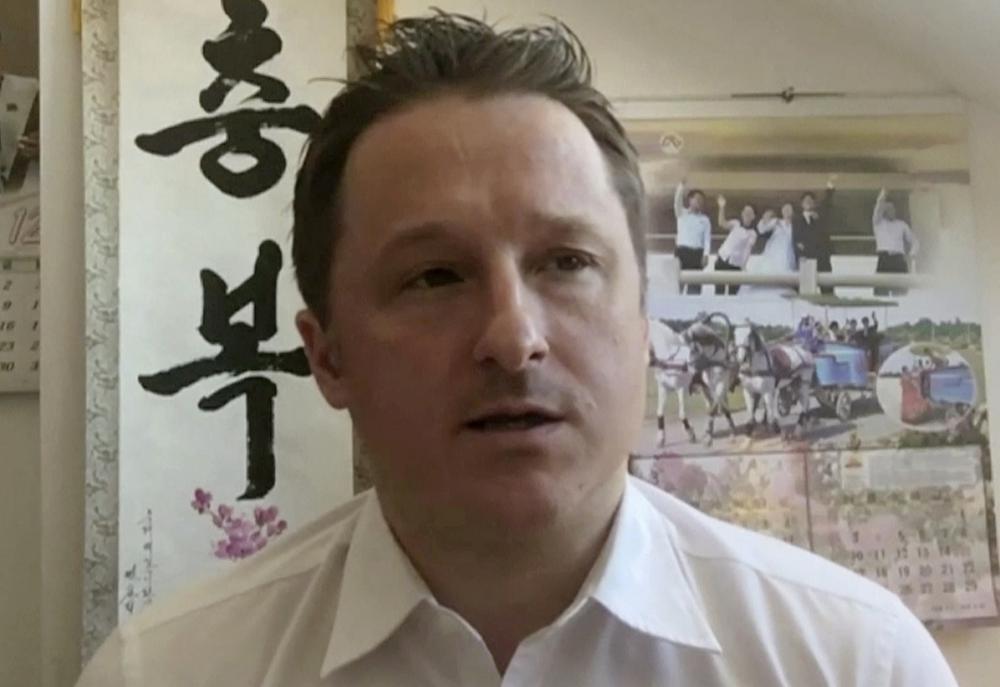
A Chinese court on Aug. 11 jailed Canadian businessman Michael Spavor for 11 years for spying, a sentence swiftly condemned by Prime Minister Justin Trudeau as "unacceptable and unjust" - and which Ottawa says it plans to appeal.
Spavor was detained in 2018 along with compatriot Michael Kovrig on what Ottawa has said are politically orchestrated charges after Huawei executive Meng Wanzhou was arrested in Canada on a U.S. extradition warrant.
Relations between the two countries have hit rock bottom, with China also accusing Canada of politicizing legal cases.
Spavor "was convicted of espionage and illegally providing state secrets", Dandong city’s Intermediate People’s Court said in a statement.
"He was sentenced to 11 years in prison."
Trudeau called the conviction and sentencing "absolutely unacceptable and unjust".
"The verdict for Mr. Spavor comes after more than two-and-a-half years of arbitrary detention, a lack of transparency in the legal process, and a trial that did not satisfy even the minimum standards required by international law," he said in a statement.
Canadian Foreign Minister Marc Garneau said Ottawa plans to appeal the sentence.
He slammed the Chinese proceedings as a "sham trial with absolutely no transparency whatsoever and a verdict that is completely unjustified, or not acceptable in terms of international rules-based law".
In a message relayed in a consular visit after the sentencing, Spavor said: "Thank you for all your support. I am in good spirits. I want to get home."
Canada’s ambassador to China, who was present in the courtroom, linked the verdict to Meng’s ongoing hearings in Vancouver.
"I don’t take it as a coincidence that we have heard the verdicts of these two cases while that trial is going on," Dominic Barton told reporters.
The United States condemned the jailing of Spavor and demanded he and Kovrig be released "immediately and unconditionally".
"The practice of arbitrarily detaining individuals to exercise leverage over foreign governments is completely unacceptable," Secretary of State Antony Blinken said in a statement.
"People should never be used as bargaining chips."
The European Union also hit out at the verdict, accusing China in a statement of failing to guarantee Spavor a "fair trial and due process".
France expressed dismay, describing the ruling as "arbitrary".
The Spavor verdict comes a day after a Chinese court upheld the death sentence of another Canadian citizen on a drug smuggling conviction.
Spavor and Kovrig - a former diplomat - were formally charged with spying in June last year, and their separate trials took place in March.
The pair have had almost no contact with the outside world since their detention.
Virtual consular visits resumed in October after a nine-month hiatus, which authorities said was due to the coronavirus pandemic.
Spavor’s family has maintained he is innocent of the accusations against him, saying he had done much as a businessman to "build constructive ties" between Canada, China and North Korea.
Spavor organized cultural visits to Pyongyang, where he met Kim Jong Un and helped foster the unlikely friendship between the North Korean leader and former NBA star Dennis Rodman.
Before his detention, Spavor was mainly based in Dandong, a Chinese city bordering North Korea.
While Beijing has insisted the detention of the two Canadians is lawful, it calls Meng’s case "a purely political incident".
Meng’s extradition hearings began last week, after nearly three years of court battles and diplomatic sparring. Final arguments began on Aug. 11.
The 49-year-old is the daughter of Chinese tech giant Huawei’s founder and CEO Ren Zhengfei.
She is fighting extradition to the United States where she is accused of defrauding banking giant HSBC by misrepresenting Huawei’s relationship with Skycom, a subsidiary that sold telecom gear to Iran.
That deal put HSBC in jeopardy as it risked breaching U.S. sanctions targeting Tehran.
Meng, whose legal team denies the allegations and says the U.S. case is flawed, lives in a mansion in Vancouver, but has to wear an ankle bracelet to monitor her movements at all times.
Her hearings are due to end on Aug. 20 but no decision on her extradition is expected for several months.
China’s judicial system convicts most people who stand trial.